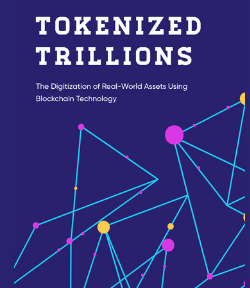
The AI Revolution in Finance: Transforming Investment Strategies with Machine Learning
Redefining Financial Markets: The Rise of AI and Machine Learning in Investment Decision-Making.
In the fast-paced world of finance, where milliseconds can mean millions, the advent of Machine Learning (ML) and Artificial Intelligence (AI) is not just an evolution – it’s a revolution. The integration of these advanced technologies into predictive finance is reshaping investment strategies, risk assessment, and market analysis. This integration marks the dawn of a new era in the financial sector, characterized by enhanced efficiency, accuracy, and strategic insights.
The AI and ML Advantage in Finance
The crux of machine learning’s appeal lies in its ability to analyze vast datasets quickly and accurately, identifying patterns and insights that would be impossible for human analysts to find in a timely manner. In the realm of finance, this capability translates into several key advantages:
- Advanced Market Analysis: Machine learning algorithms can process and analyze vast amounts of market data, including historical price patterns, global economic indicators, and social media sentiment. This analysis can unearth subtle market trends and correlations that inform more accurate predictions about future market movements.
- Risk Management and Mitigation: AI-driven models can anticipate and evaluate financial risks more efficiently than traditional models. By analyzing past market behavior in times of volatility, these models can predict potential downturns and suggest strategies to mitigate losses.
- Algorithmic Trading: Machine Learning enhances algorithmic trading strategies by allowing them to learn and adapt to new market conditions in real-time, making high-frequency trading both faster and smarter.
- Personalized Investment Solutions: AI and ML can tailor investment strategies to individual investor profiles, considering personal risk tolerance, investment goals, and market conditions, thereby democratizing personalized investment advice that was once the preserve of the wealthy.

The Disruptive Impact on Traditional Investment Strategies
This technological disruption is altering the landscape for investment firms, hedge funds, and individual investors. Firms leveraging machine learning are gaining a competitive edge, able to react to market changes with unprecedented speed and precision. The traditional reliance on human intuition and experience is being supplemented – and in some cases, replaced – by data-driven insights and machine intelligence.
Ethical and Practical Considerations
However, with great power comes great responsibility. The reliance on AI and ML in finance raises questions about transparency, ethical considerations in automated decision-making, and the potential for systemic risks due to over-reliance on algorithmic trading. Additionally, the “black box” nature of some AI systems can make it challenging to understand how certain investment decisions are made, which is a concern for regulators and investors alike.
Preparing for an AI-Driven Financial Future
To stay relevant in this new era, financial professionals need to adapt by gaining skills in data analytics and understanding machine learning principles. Meanwhile, regulators must keep pace with these technological advances, ensuring a balance between innovation and risk management.
The integration of machine learning and AI in predictive finance is more than just a technological upgrade; it’s a paradigm shift. The financial sector is moving towards a future where data-driven and AI-enhanced strategies become the norm. This evolution promises not only higher efficiency and better returns but also poses challenges that require careful navigation. As we stand at the brink of this new frontier in finance, one thing is clear – the future of investment strategies is inextricably linked with the advancements in AI and machine learning, and this journey is just beginning.






